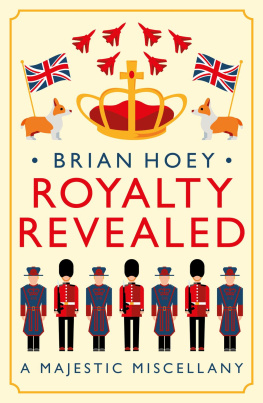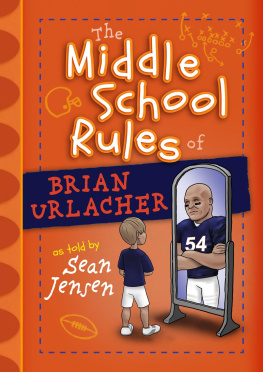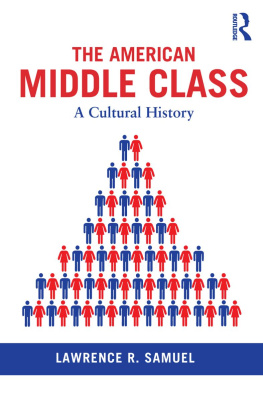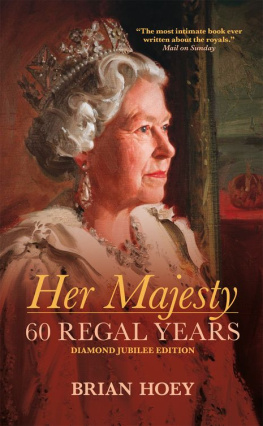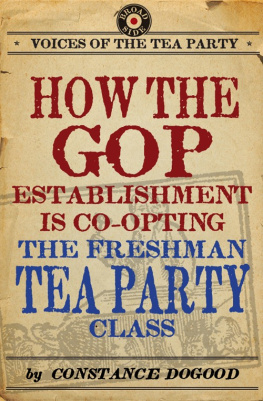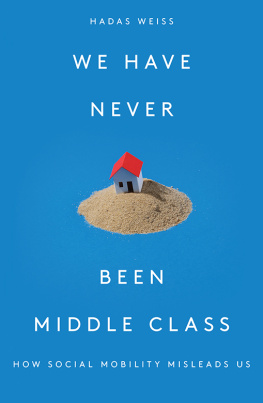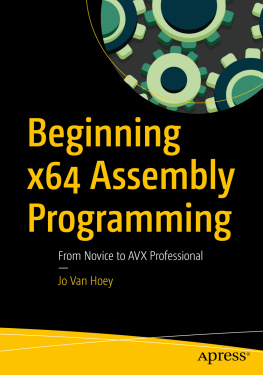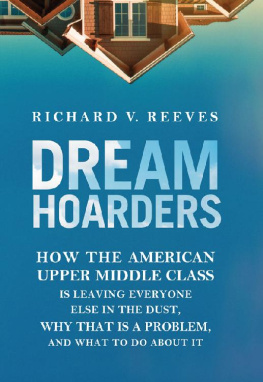2014 by Vanderbilt University Press
Nashville, Tennessee 37235
All rights reserved
First printing 2014
This book is printed on acid-free paper.
Manufactured in the United States of America
: Jdgrant | Dreamstime
Library of Congress Cataloging-in-Publication Data on file
LC control number 2014008051
LC classification number HQ2044.U6H64 2014
Dewey class number 305.5'50973dc23
ISBN 978-0-8265-2005-0 (cloth)
ISBN 978-0-8265-2007-4 (ebook)
Preface
Due to the historical development of anthropology as a disciplineemerging as it did within the context of colonialismanthropologists have tended to conduct their research among people deemed exotic or simply those who could be considered the other. This proclivity has led to a preponderance of fieldwork in geographically remote places or, if not in foreign places, then among the relatively alien at home. With a Fulbright grant in hand and in keeping with disciplinary traditions, my own interests in family, work, and community led me first to rural Indonesia in 1998. My research focused on community building in migrant villages fashioned wholesale from the ground up in an isolated river valley on the island of Sulawesi following relocation of hundreds of families from the island of Bali who had been displaced by a cataclysmic volcanic eruption a generation earlier. Though this relocation was exceptional given the circumstances, under both colonial and postcolonial governments the transmigration program was intended to lessen population pressures in heavily populated areas of the country while encouraging development in far-flung destination areas. For the transmigrants who participated voluntarily, there were parallels to homestead programs during frontier settlement in the United States.
My work among these transmigrants revealed how they dealt, individually and collectively, with profound disorientation of resettlement and their attempts to establish socially, economically, and ecologically sustainable communities in places much different from those that they left. I was interested not simply in migration, but rather with what we might call the coping strategies of migrants. How did they collectively struggle to create viable communities? In my research on migration in the United States, I continue to concentrate less on migration as a demographic processhow it affects population structure and dynamicsthan on what relocation means for both the people and the places involved. This is at least in part a distinction between my qualitatively oriented approach to research as opposed to the generally quantitative approaches taken by demographers and others interested in migration trends.
Upon my return from a year in Indonesia, I accepted an offer to start a different project in the United States through a newly formed Alfred P. Sloan Foundation Center for the Study of Working Families at the Institute for Social Research in Ann Arbor, Michigan. Thus, I was thinking about how I would overcome my own disorientation of starting over as I began fieldwork in the midwestern United States. Following the Sloan Foundations mandate, my research needed to address changing conditions of work and family in the American middle classan atypical research agenda for an anthropologist. Indeed, that was one of Sloans goals: to encourage more qualitative research on the subject and, specifically, up close studies of everyday lives that characterize the methods of cultural anthropologists. Such ethnographic work, as the methodology is called, promised to both humanize and contextualize predominantly statistical data.
I knew from my fieldwork in Indonesia that challenges and opportunities presented by resettlement are rich with meaning for individuals, families, and places. Using statistical data, I began exploring broad migration trends in the United States. Having examined deliberate community building among transmigrants, I considered the back-to-the-land movement and so-called intentional communities born out of communitarian desires to create places to live and work according to utopian ideals. Eventually I came upon literature on what demographers have called noneconomic migration and applied to behavior where people relocate not to maximize individual earning potential but rather to pursue things less easily quantified by social scientists.
Following this lead, I arrived at quality of life as a kind of touchstone. It seemed that towns around the country now spoke explicitly about wanting to preserve or create it. Place-rating publications such as the popular Places Rated Almanac claimed to measure it. In the emerging high-tech economy of the 1990s, it had become shorthand for a set of practices aimed at creating a happier, more productive workplace. Could personal concern for quality of life, as opposed to individual economic maximization, be something that motivated would-be migrants not only to relocate but, more importantly, to undergo potentially transformative redefinitions of work and family in the process?
The ascendant status of quality of life as a category of public interest at this time was later confirmed when it gained unprecedented national status during the 2000 presidential campaign. As candidates for the Democratic nomination, both Al Gore and Bill Bradley issued detailed policy statements on quality of life and livability to address questions about urban and regional planning. How was it that something like suburban sprawl could now surface as a matter of substance for a political platform?
The geographer Robert Rogerson provides a possible explanation in his observation that at a time of profound globalization [financial] capital is fragmenting into many parts with considerable volatility in the desires and demands of capitalboth in terms of production needs and consumptionquality of life within its relative ubiquity provides an important anchor attached to which those involved in shaping the visions and trajectories of [places] can build.material costs found elsewhere. For families, a focus on quality of life might allow a small measure of inner guidance in a tumultuous world.
In 2000, I attended the Michigan Legislative and Business Leaders Public Policy Forum titled Building Tomorrows Economy. Focusing on quality-of-life initiatives in urban and regional planning, forum organizers suggested that If you build it, they will come. One promotional brochure stated emphatically, Theres growing recognition in Michigan that improving quality of life for our citizens is an important factor in ensuring continued economic growth and prosperity. As the ability to attract workers becomes an increasingly important competitive advantage, how to provide workers with urban vitality, a clean environment, quality education, affordable housing, and efficient transportation becomes a central question for business and political leaders alike.
Looking to find a site in the Midwest where I could explore the social and cultural significance of quality of life for work and family, I recalled my experiences vacationing in the Grand Traverse region of northwestern Lower Michigan. People told me how they had moved away from heavily populated urban areas, often leaving behind corporate jobs, in order to live there. A good number seemed to treat the area as part-time refuge before pulling up stakes, as some would tell me in animated conversation, in order to relocate their lives. Their motivation sounded as if based in concern for quality of life. What did this decision to relocate mean to them and, ultimately, for the destination community? I began to see how quality of life pointed at individual needs and desires that I could interpret as having to do with lifestyle choices. Marking them



